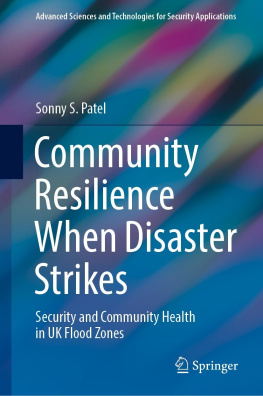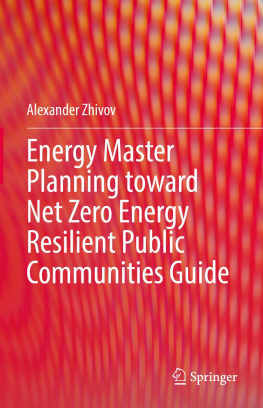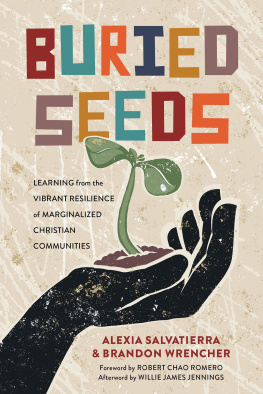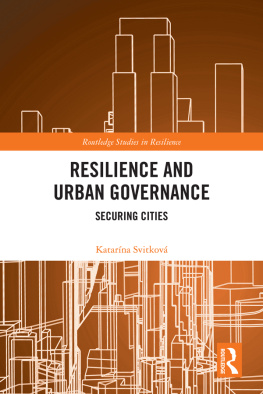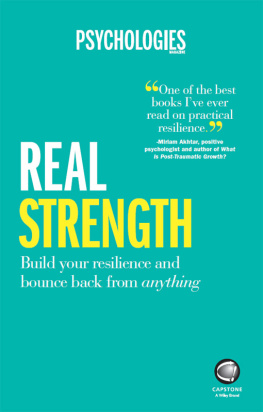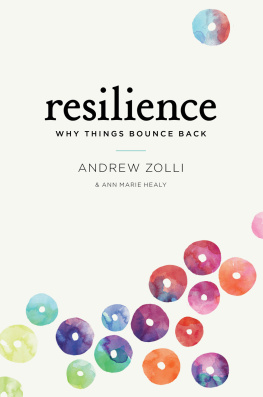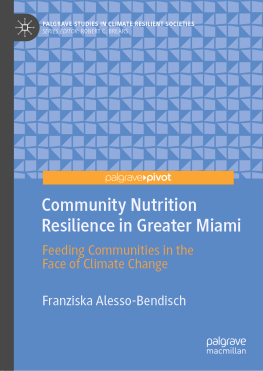Community Resilience and Environmental Transitions
A highly welcome book containing novel insights on two great challenges of the post-sustainability era how to build resilience in social and ecological systems, and how to make transitions to ways of living that are good for both people and planet. Brim full of clear analyses and important policy implications.
Professor Jules Pretty OBE, Deputy Vice-Chancellor, University of Essex
In this book, Geoff Wilson applies transition theory where he has already made a considerable intellectual mark to the buzzword of the moment, resilience. This book makes a major contribution to our understanding of how community resilience is made, and unmade.
Jonathan Rigg, Durham University
This book discusses the resilience of communities in both developed and developing world contexts. It investigates the notion of resilience and the challenges faced by local communities around the world in dealing with disturbances (natural hazards or humanmade) that may threaten their long-term survival. Using global examples, specific emphasis is placed on how learning processes, traditions, policies and politics affect the resilience of communities and what constraints and opportunities exist for communities to raise resilience levels.
Community Resilience and Environmental Transitions contributes towards academic debates that argue that social resilience (the resilience of human systems) is crucial for understanding constraints and opportunities faced by communities in a rapidly changing world. It analyzes specifically how environmental, political and socio-economic transitions affect community resilience and suggests that community embeddedness into the globalized world can both raise or reduce community-level resilience. The book argues that relocalized community pathways (e.g. the burgeoning Transition Towns Movement), in particular, highlight how communities are attempting to recapture lost social and environmental capital to increase community resilience.
Geoff A. Wilson has worked on research topics linked to human-environment interactions for the past 20 years, with extensive research conducted in various geographical settings, including New Zealand, Australia, Germany, Switzerland, and the UK. He has published several books, including Environmental Management: New Directions for the 21st Century and is currently Editor of the journal Geography Compass: Environment and Society.
Community Resilience and
Environmental Transitions
Geoff A. Wilson
First published 2012
by Routledge
2 Park Square, Milton Park, Abingdon, Oxon OX14 4RN
Simultaneously published in the USA and Canada
by Routledge
711 Third Avenue, New York, NY 10017
Earthscan is an imprint of the Taylor & Francis Group, an informa business
2012 Geoff A. Wilson
The right of Geoff A. Wilson to be identified as author of this work has been asserted by him in accordance with the Copyright, Designs and Patent Act 1988.
All rights reserved. No part of this book may be reprinted or reproduced or utilised in any form or by any electronic, mechanical, or other means, now known or hereafter invented, including photocopying and recording, or in any information storage or retrieval system, without permission in writing from the publishers.
Trademark notice: Product or corporate names may be trademarks or registered trademarks, and are used only for identification and explanation without intent to infringe.
British Library Cataloguing in Publication Data
A catalogue record for this book is available from the British Library
Library of Congress Cataloging in Publication Data
[CIP data]
ISBN: 978-1-849-71151-7 (hbk)
ISBN: 978-0-203-14491-6 (ebk)
Figures, tables and boxes
Figures
Tables
Boxes
Acknowledgements
Ideas contained in this book are closely linked to my past research and involvement in research projects over many years and are, therefore, bound to leave a long trail of intellectual and other debts. In particular, a book that focuses on thoughts, ideas and theories cannot be successfully written without the help of many individuals who have critically commented on various aspects of the book. My biggest debt of gratitude is to my wife Olivia Wilson who supported this book project throughout, had to endure my long absences while writing, commented on the final draft of the book, and who was asked regularly to comment on lines of thought developed in the book. Especial thanks must go to my postdoctoral assistant Claire Kelly, and also to Helen Briassoulis, Anton Imeson, Michiel Curfs, Sandra Naumann, Rutal Landgrebe, Agostino Ferrara, Gianni Quaranta, and to all other colleagues on the EU-funded 3 million LEDDRA Project, for very stimulating and critical discussions on issues of community resilience. I am particularly grateful to the EU Framework 7 programme for funding LEDDRA and for giving us the opportunity to investigate issues of community resilience and land degradation in diverse case study communities located in China, Morocco, Spain, Italy and Greece, which have provided the empirical basis for some of the examples mentioned in this book.
Special thanks are due to Rob Hopkins, my former PhD student and initiator of the Transition Town Movement, who greatly inspired ideas expressed in this book; my colleague Ian Bailey at the University of Plymouth who provided invaluable constructive criticism on conceptual issues developed in the book over the years (partly linked to our joint Third Year course Global Environmental Politics); James Sidaway who critically commented on approaches used in the book and for stimulating academic discussions (in the sauna and during delicious meals) on many of the political issues raised in Chapters 57; and to my brother Peter Wilson for critical comments and stimulating exchanges (while climbing in the Alps) on philosophical issues of transition and resilience. Many thanks also to my PhD students Wendy Miller, Andrew Fox and Huw Thomas who are all currently working on questions related to community resilience and who have enabled me to discuss and test some of my conceptual ideas with them. Especial thanks also to my son Erik who has often lured me away from my desk and kept me fit by constantly beating me at table tennis and tennis (well, he is a top UK junior tennis and table tennis player!).
Ideas for this book were tested at various conferences, seminars and workshops, and I am particularly grateful to all those who commented critically and asked probing questions. This includes the many people who attended and contributed to the session on Rural community resilience at the 2009 Association of American Geographers Conference in Las Vegas (particular thanks to Bruce Scholten) and to the session on Conceptualising resilience at the 2010 Institute of British Geographers Conference in London (especial thanks to Guy Robinson).
A book like this cannot be written without the supportive environment of research-led institutions that also reward blue sky research not directly linked to the generation of overhead income. I, therefore, wish to thank colleagues at the School of Geography, Earth and Environmental Sciences at the University of Plymouth for providing an academically stimulating work environment (especial thanks to Neil Roberts, Ruth Weaver and Jim Griffiths) and, in particular, for enabling me to find the time beyond the duties of teaching and administration to successfully complete this book.


